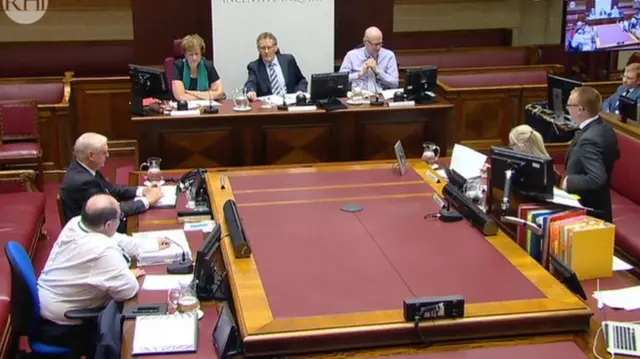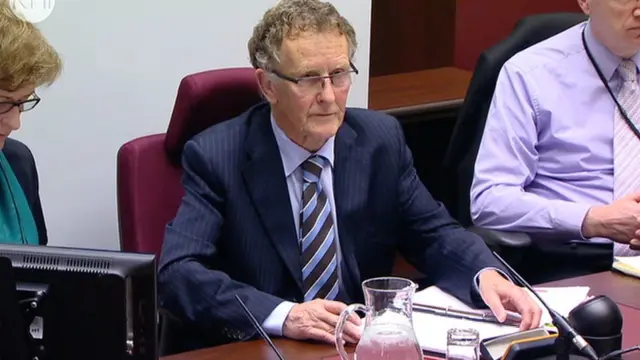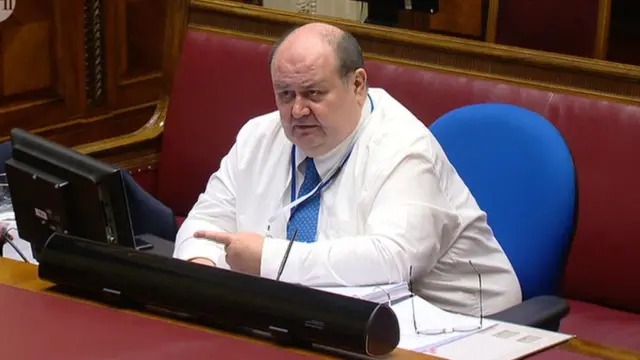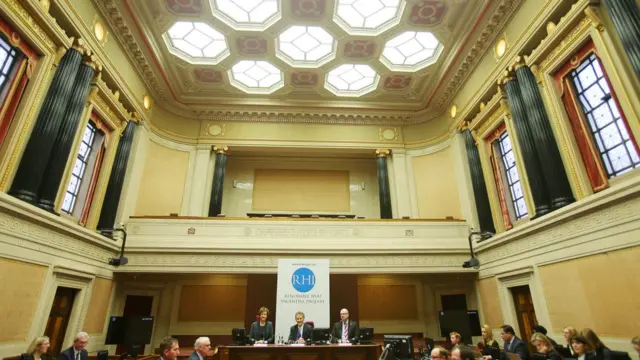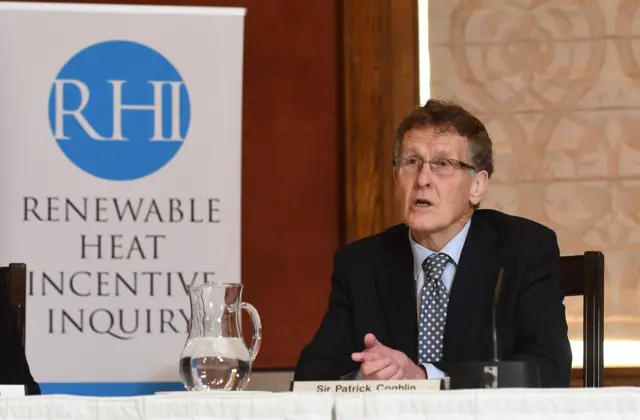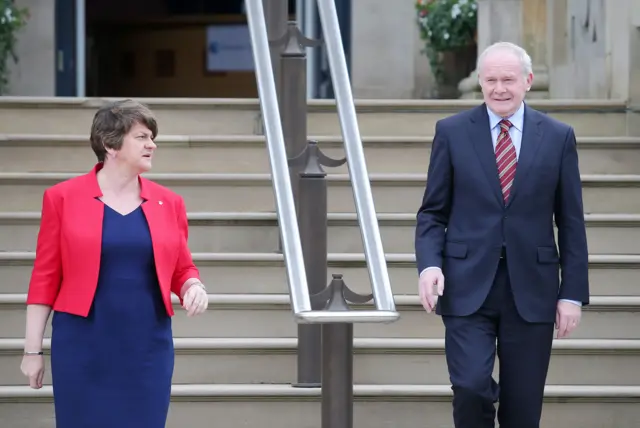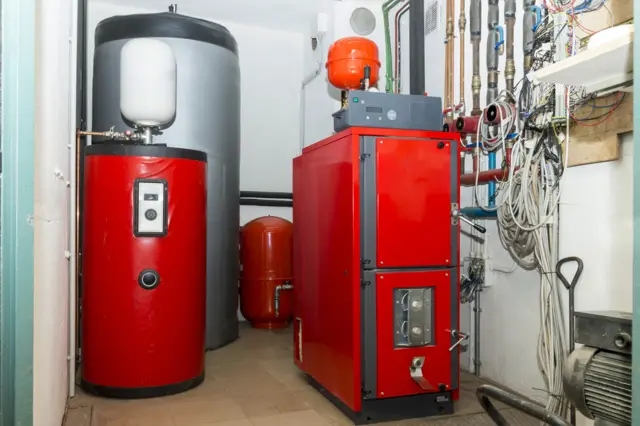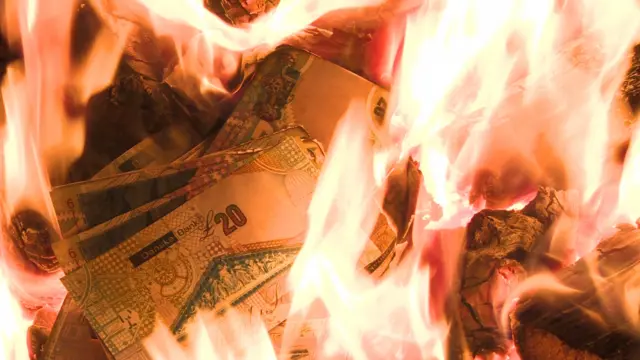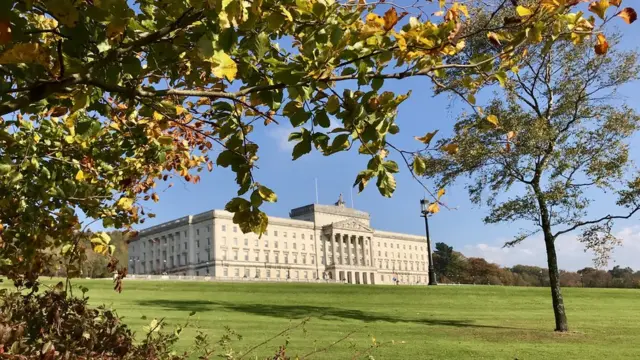'Inaccurate information became accepted language within DETI'published at 12:37 BST 18 October 2018
"Everybody knew" that an important review of the RHI scheme that was supposed to have been carried out in 2014 hadn't been done, says Trevor Cooper.
It had been a condition of the original approval of the initiative that it would be regularly reviewed, providing the opportunity to spot problems and get them rectified.
But in a business case for the changes to the RHI scheme that it submitted to the finance department, DETI claimed a review had been done in October 2013.
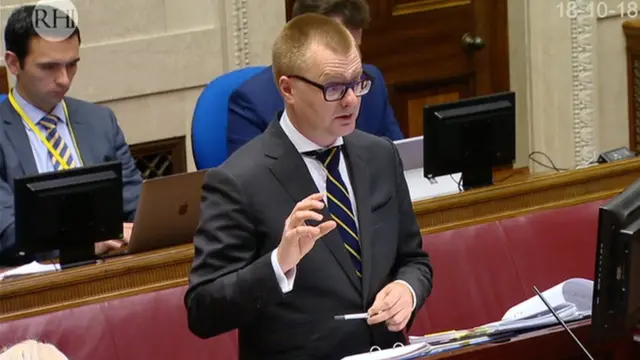 Image source, RHI Inquiry
Image source, RHI InquiryInquiry barrister Joseph Aiken says there are a number of occasions such as that when things that are "just not accurate" were not corrected.
Incorrect information became the "accepted language" within DETI and is presented as a "statement of fact" in material given to the Stormont department that's the "gatekeeper to the funds", he adds.
Mr Cooper accepts that shouldn't have happened.

